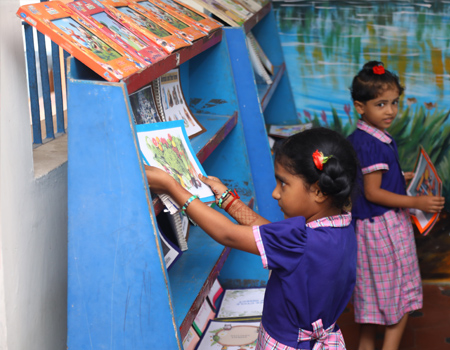The SSLC High Achievers Program was conducted for students...
Recent Program
A “Run for Swadeshi” marathon was successfully conducted on...
Pongal was celebrated on 13.1.26 in our Vidyalaya in...
Pre Primary
Classes LKG, UKG
Our Pre-Primary curriculum follows the Early Childhood Care and Education (ECCE) framework, designed to foster the holistic development of children.
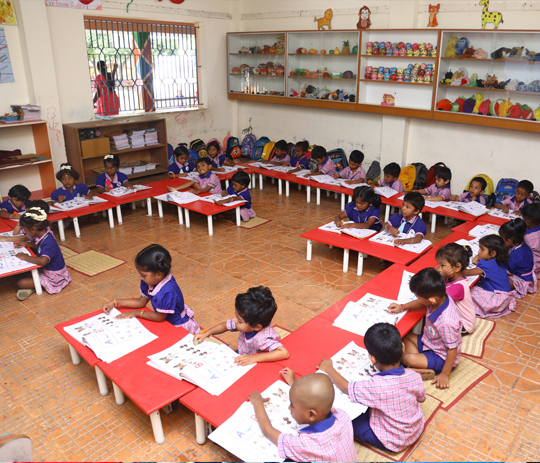
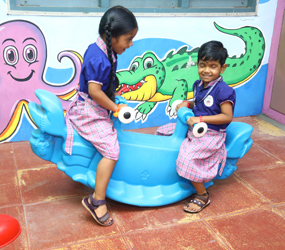
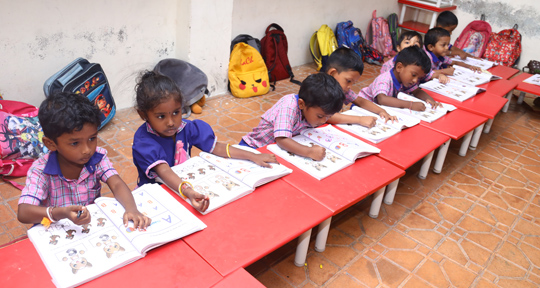
Panchakosha Vikas in ECCE – VET Curriculum Perspective
In the Vivekananda Educational Trust (VET) curriculum for Early Childhood Care and Education (ECCE), Panchakosha Vikas is embraced as a guiding principle for holistic child development. The framework focuses on nurturing the five layers of the child’s being to create a balanced, harmonious growth experience:
- Annamaya Kosha (Physical Development): Encouraging gross and fine motor skills through play, yoga, and physical activities to build a healthy body.
- Pranamaya Kosha (Vital Energy): Promoting breathing exercises, relaxation, and energy balance to enhance vitality and well-being.
- Manomaya Kosha (Emotional & Mental Growth): Supporting emotional intelligence, social skills, and mental health through guided interactions, storytelling, and creative play.
- Vijnanamaya Kosha (Intellectual Development): Stimulating curiosity, problem-solving, and critical thinking using age-appropriate cognitive activities, pre-literacy, and pre-math skills.
- Anandamaya Kosha (Spiritual & Moral Foundation): Instilling values, joy, mindfulness, and a sense of belonging through cultural activities, stories from Indian heritage, and community participation.
By integrating Panchakosha Vikas into its ECCE curriculum, VET ensures that children develop not just academically but also physically, emotionally, socially, intellectually, and spiritually. This comprehensive approach aligns with Swami Vivekananda’s vision of “Man-making education,” preparing children for a balanced and purposeful life.
Shishuvatika
Shishuvatika is an informal educational environment centered on the holistic development of children—physically, emotionally, socially, and spiritually. Rooted in the principle of learning through experience, Shishuvatika provides a nurturing space where children are encouraged to explore, discover, and grow at their own pace. By engaging in hands-on activities and meaningful interactions, they learn by doing—developing independence, confidence, and a lifelong love for learning.
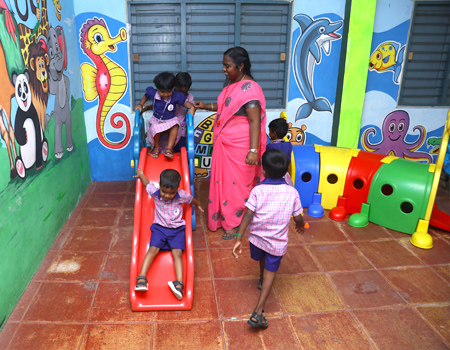
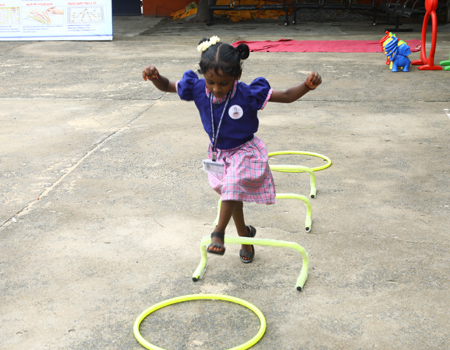
Sensorial activities
Sensorial activities facilitate the refinement of a child’s sensory perception, enabling them to engage with and comprehend their environment through structured, meaningful experiences.
These activities are designed to enhance the development of the child’s senses, providing rich opportunities for exploration and cognitive growth through sensory engagement.
By engaging in sensorial activities, children develop and sharpen their sensory awareness, thereby deepening their understanding of the world through guided sensory experiences.
Cognitive Skills (Pre-math, Pre-literacy)
Cognitive skills in ECCE help children think, reason, remember, and solve problems. These include pre-math and pre-literacy abilities that prepare them for future learning.
- Pre-math: Sorting, matching, counting, shape and size recognition
- Pre-literacy: Listening, recognizing sounds and letters, storytelling
- Thinking and problem-solving through exploration and play
- Memory and attention development
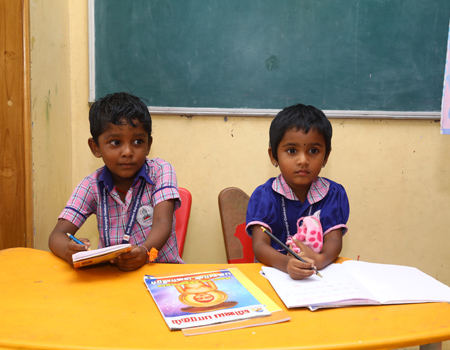
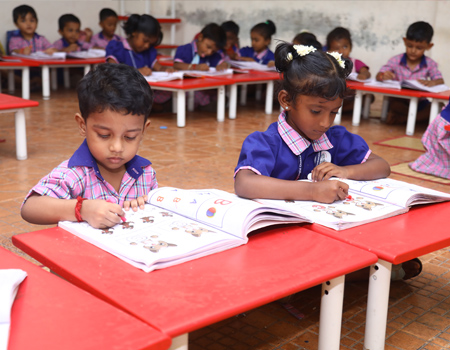
Language and literacy
Language and literacy activities strengthen reading abilities through the use of visual supports and promote communication skills through meaningful dialogue.
These activities enhance early reading development by incorporating visual aids and fostering expressive language through interactive conversations.
Language and literacy development is supported through visual stimuli to aid reading and through dialogue to encourage effective communication.
Activity based
Activity make learning more engaging and interesting. In this flipped classroom learning methodology, the student is kept as the centre of the learning process, and the teacher is only acting as the facilitator by introducing and guiding them through the learning activities. This way, the students learn at their own pace.
